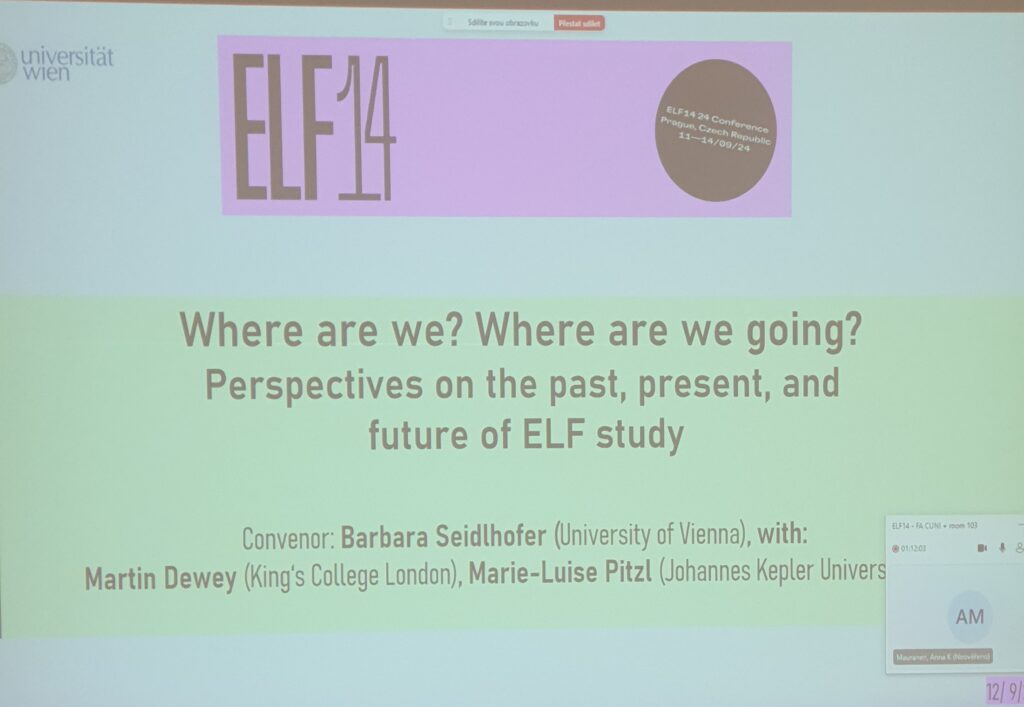Where are we? Where are we going? Perspectives on the past, present, and future of ELF study
These are my highlights from Barbara Seidlhofer, Martin Dewey, and Marie-Luise Pitzl’s plenary.

- “ELF is interesting to researchers, but is not important for teachers and learners” (IATEFL Conference – Glasgow 2017)
- This discussion happened at IATEFL’s conference (you can find the video here), and it was mentioned as part of a timeline of events involving ELF. I thought it’d be relevant to bring this discussion because, though it isn’t something I hear explicitly, I feel it implied in the speech of many of my peers. I have tons of reasons why I deem ELF important to teachers and learners alike, but I’d like to hear from you. What’s your take on that?
- There’s an underrepresentation of research on themes such as conflict resolution, asylum, immigration, unequal encounters, exercises of power, and discrimination. Also on language education, language planning (CEFR), testing, and assessment.
2. This means if your learners are in any of these situations, you probably won’t even have research to back you up, let alone materials. I don’t know about you, but I constantly wonder if something is/isn’t relevant to my learners based on their needs, and current/desirable proficiency level.
I try to refer to research to make some decisions, but I just can’t find it. For instance, if you know of any papers on how BELF in Brazil, please let me know because I am still looking for them.
- “Lack of conceptualization of ‘E’ as ELF, can be highly conflictual in its consequences.”
3. This point relates to the first one. For users of English, it can mean from misunderstandings to imprisonment (see the wonderful book ‘Making sense of bad English,’ where Elizabeth Peterson explains how what’s perceived as “bad English” in court led to prejudice against a defendant in a case of ELF used by “native speakers”).
For teachers, it may involve waste of time and resources, trauma, frustration, and more for themselves and their learners.

